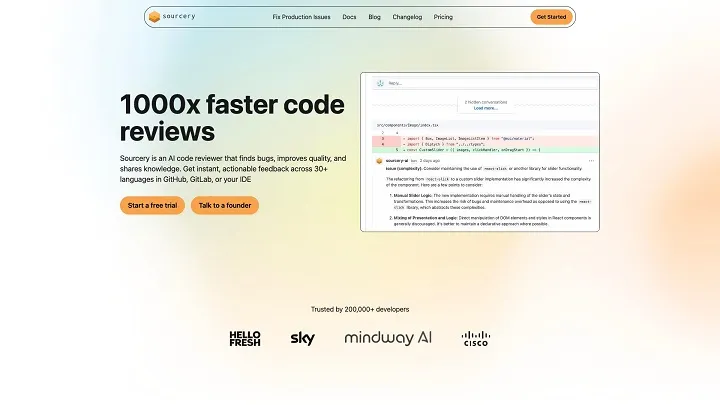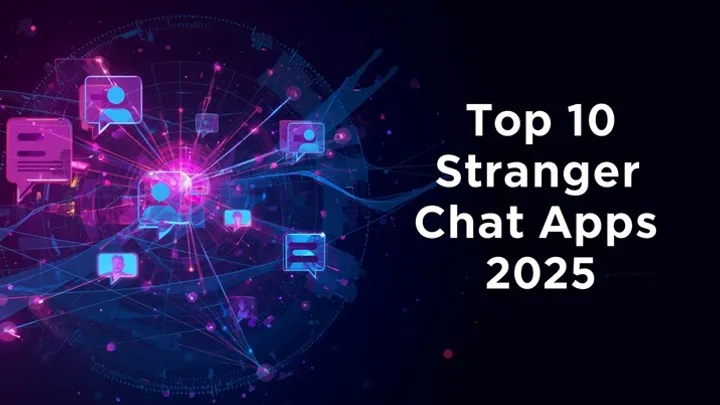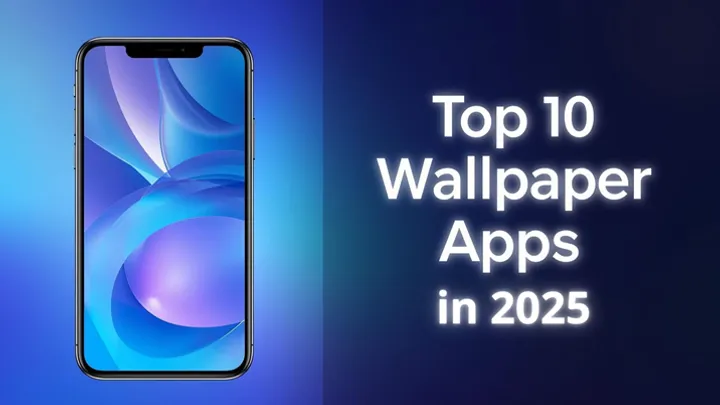Introduction
In 2025, AI-powered code documentation tools have transformed software development by automating the creation of comments, docstrings, and comprehensive documentation. Developers spend up to 30% of their time on documentation, and these tools reduce that burden by 70%, according to productivity studies. Leveraging advanced language models, they generate context-aware explanations, integrate with IDEs like VS Code, and support languages from Python to JavaScript, making them vital for solo developers, teams, and open-source projects.
This article ranks the top 6 apps—GitHub Copilot, Mintlify, Qodo, AskCodi, Sourcery, and Amazon Q Developer—based on accuracy, usability, and reviews from sources like Index.dev, Spacelift, and DEV Community. Each entry includes features, strengths, weaknesses, and a 5-star rating, tailored for use cases like Python docstrings or JavaScript API docs. Available across iOS, Android, web, and desktop, these tools ensure maintainable, well-documented codebases.
1. GitHub Copilot
GitHub Copilot, powered by OpenAI, is an AI coding assistant that auto-generates docstrings, comments, and documentation in real time. Free trial; $10/month for individuals.
Features: Integrates with VS Code, JetBrains, and iOS/Android via extensions, using secure GitHub authentication. Supports 20+ languages, suggesting inline comments, function docstrings, and READMEs based on code context. Offers chat-based queries for custom docs and multi-file awareness.
Strengths: Copilot excels at generating Python docstrings or JSDoc comments instantly, ideal for fast-paced coding. Its codebase awareness produces comprehensive guides, with an 85% acceptance rate for auto-generated docs. Developers save hours on boilerplate for open-source repos. Perfect for full-stack devs documenting REST APIs.
Weaknesses: AI can misinterpret complex logic, requiring review. Privacy concerns arise from code telemetry. Limited to supported IDEs, with no standalone mobile app.
Evaluation: 4.8/5 stars. Copilot leads for seamless, in-editor documentation, essential for daily coding, but outputs need verification.
2. Mintlify

Mintlify automates polished documentation for codebases, generating Markdown files and API references. Free for open-source; Pro at $25/month.
Features: Available on web, iOS, Android, with GitHub integration and AES-256 encryption. Auto-creates Markdown docs, changelogs, and API guides from code changes. Supports search, versioning, and custom styling for professional outputs.
Strengths: Mintlify scans repositories to produce clean, searchable docs, perfect for JavaScript/TypeScript projects like React apps. AI-driven updates sync with commits, cutting documentation time by 60%. Ideal for startups creating client-facing API guides or maintaining open-source libraries.
Weaknesses: Strongest for web languages; less effective for low-level languages like C++. Pro required for private repos. Initial scans slow for large projects.
Evaluation: 4.7/5 stars. Mintlify excels for repository-wide documentation, great for collaborative projects, but language support is limited.
3. Qodo
Qodo (formerly CodiumAI) automates documentation, tests, and code reviews with AI agents. Free tier; Dev plan at $9/month.
Features: Supports VS Code, iOS/Android extensions, with secure cloud processing. Generates docstrings, unit tests, and explanations via a /document command. Covers Python, JavaScript, Java; integrates with Git for PR reviews.
Strengths: Qodo’s multi-model AI (Claude, GPT) creates detailed function docs, ideal for legacy code refactoring. Contextual understanding ensures maintainable outputs, saving 70% of documentation time. Suits developers enhancing old Python scripts or Node.js modules.
Weaknesses: Free tier caps generations at 50/month. AI misses edge cases occasionally. Extension-only, lacking a standalone app.
Evaluation: 4.6/5 stars. Qodo’s agent-based approach ties documentation to testing, perfect for mid-sized teams, but free limits constrain heavy use.
4. AskCodi
AskCodi is an AI assistant for code generation and documentation, driven by natural language prompts. Free; Pro at $9.99/month.
Features: Web, iOS, Android, with IDE plugins. Auto-generates comments, docstrings, and guides from prompts like “Document this function.” Supports 50+ languages, with a chat interface for refining outputs.
Strengths: AskCodi’s conversational AI explains complex code, like Python ML models, with 80% accuracy. Quick setup for snippets makes it beginner-friendly. Ideal for students documenting experimental projects or small-scale apps.
Weaknesses: Vague prompts yield inconsistent results. Pro needed for unlimited queries. Less integrated with workflows than Copilot.
Evaluation: 4.5/5 stars. AskCodi’s chat-driven documentation is intuitive for learners, but success depends on clear prompts.
5. Sourcery

Sourcery automates code reviews and documentation, focusing on clean, explained code. Free trial; $10/month.
Features: VS Code/JetBrains extensions, accessible on iOS/Android, with secure processing. Suggests inline comments and refactors with documentation. Supports Python, JavaScript; integrates with GitHub PRs.
Strengths: Sourcery enhances readability with type hints and comments during reviews, reducing tech debt by 40%. Proactive suggestions streamline Python project docs. Great for teams enforcing consistent documentation standards.
Weaknesses: Python-centric; weaker support for other languages. Extension-dependent, no standalone app. Suggestions can be overly verbose.
Evaluation: 4.4/5 stars. Sourcery’s review-integrated docs boost quality, ideal for Python developers, but limited language scope.
6. Amazon Q Developer
Amazon Q Developer automates documentation within AWS workflows, generating guides for cloud-native code. Free for basic use; Pro at $19/user/month.
Features: AWS IDE, iOS, Android, with secure Bedrock integration. Auto-generates docs for Lambda functions, SDKs, and deployments. Supports multiple languages; chat interface for refinements.
Strengths: Q Developer excels in SDLC documentation, producing API guides for AWS services with 90% accuracy. Ideal for enterprise developers documenting microservices or serverless apps. Streamlines cloud-native project maintenance.
Weaknesses: AWS-centric, less versatile outside its ecosystem. Pro required for advanced features. Steep learning curve for non-AWS users.
Evaluation: 4.4/5 stars. Q Developer is powerful for AWS-focused documentation, essential for cloud teams, but ecosystem lock-in limits broader use.
Conclusion
The top 6 AI-powered apps for automatic code documentation in 2025—GitHub Copilot, Mintlify, Qodo, AskCodi, Sourcery, and Amazon Q Developer—streamline the creation of comments, docstrings, and guides. Copilot integrates seamlessly into coding workflows, Mintlify scales for repositories, and Qodo ties documentation to testing. AskCodi offers intuitive chat-based docs, Sourcery enhances reviews, and Q Developer excels in AWS environments. Despite challenges like language specificity or costs, combining them (e.g., Copilot for inline comments, Mintlify for repo guides) optimizes documentation. Explore free tiers to automate your documentation and maintain cleaner codebases.

















